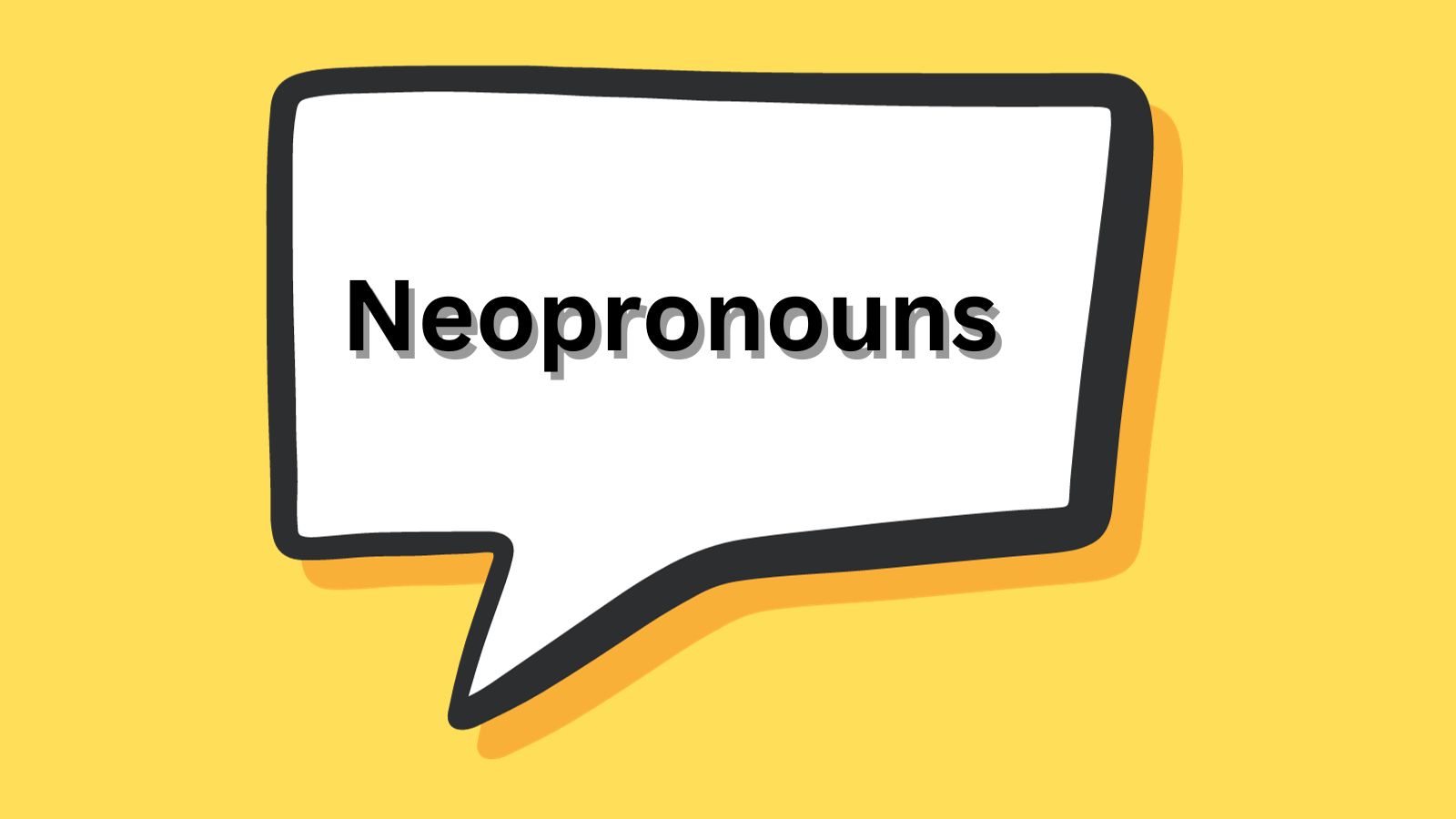CNN caught the internet’s attention this past Saturday after rolling out an in-depth guide on the usage of ‘neopronouns’. The network’s guide embraces unique genderless pronouns such as ‘leaf/leafself’, ‘sun’, and ‘star’. This initiative aims to educate the public on the complexities of gender identity and the importance of individual expression in language. However, this has also sparked a wave of controversy and debate. Critics question the practicality and necessity of such terms, while supporters laud the effort for promoting inclusivity and diversity.
Language Revolution

Imagine exploring a linguistic landscape where grammar transcends traditional gender markers. This is precisely what CNN ventured to do in their engaging piece, “A guide to neopronouns, from ae to ze”. The article delves into the fascinating world of neopronouns, sharing enlightening insights from leading experts in the field. Their advice to readers? Approach these emerging neopronouns – from ‘leaf’ to ‘star’ – with the same respect and everyday usability one would any conventional pronoun.
“Some of the most common words in the English language have gender markers, including pronouns,” CNN reported. “But not all of them are binary. Consider the singular “they,” preferred by some nonbinary and trans people for whom gendered pronouns do not fit.”
What Are Neopronouns?

Maybe you’ve seen them on social media or maybe this is a completely new term for you. Either way, you’re about to dive into the intriguing world of ‘neopronouns.’ In its simplest form, neopronouns are a type of pronoun that were not traditionally included in languages but have recently been created and popularized to address gender identities outside the binary norms.
Understanding Neopronouns

When we talk about ‘traditional pronouns’, we usually refer to ‘he’, ‘she’, and ‘they’. However, as our understanding and recognition of the spectrum of gender identity has expanded, so too has our linguistic repertoire. Enter neopronouns. These are often used by people who feel that traditional pronouns don’t accurately reflect their identity.
‘Ze/zir’

These are some of the most common neopronouns. They are often used by people who identify as non-binary or genderqueer.
‘Xe/xem’

These are also frequently used neopronouns. They offer an alternative for those who don’t feel connected to traditional male or female pronouns.
Nounself Pronouns

Nounself pronouns are a subset of neopronouns where individuals use everyday objects, nature, and even mythical creatures as part of their pronouns. Examples include, but are not limited to ‘leaf/leafself’, ‘star/starself’, ‘sun/sunself’ and many more. The use of these pronouns can offer a more personal touch to a person’s identity, allowing them to connect more intimately with their sense of self.
CNN’s Hot Take

“And then there are neopronouns (“new” pronouns), gender-neutral or nonbinary pronouns that are distinct from the common she, he and they. Neopronouns include terms like ‘xe’ and ‘em,’ and some of them even date back several centuries, when they were introduced by writers as a solution for referring to subjects without assuming gender. Now, they’re also commonly used by nonbinary and trans people,” wrote CNN.
Neopronouns are most often employed by “nonbinary, transgender and gender nonconforming people because they offer more freedom of identity,” the story states. The piece goes on to list a number of “common neopronouns,” shared by the Human Rights Campaign with examples of how to properly use them in a sentence.
Some of the examples included:
” xe/xyr (commonly pronounced zee/zeer) I asked xyr to come to the movies. Xe said yes!”
“The teacher graded zir paper today, and ze got an A! Ze said hirself that I’m hir favorite neighbor.”
You’re A Star

The CNN report continued to endorse the use of nounself pronouns like ‘star’ or ‘starself’ in place of binary pronouns like ‘she’ or ‘herself. “For someone who uses the nounself pronoun ‘leaf,’ that may look like: ‘I hope leaf knows how proud we are that leaf is getting to know leafself better!’ or ‘Leaf arrived at the coffee shop before me; I was mortified to have been late to meet leaf.’”
Tumblr Fad?

Linguist Jason D’Angelo has shared some intriguing insights with The New York Times about the advent of nounself neopronouns. He restates that these innovative pronouns gained momentum on the renowned social platform, Tumblr, back in 2012 and 2013. D’Angelo further adds that these neopronouns are not fading into obscurity. On the contrary, members of various fandoms, relishing their unique properties, continue to adopt and use these neopronouns with great enthusiasm.
Help Or Hinderance?

Even as the significance of neopronouns rises, acceptance of these new genderless identifiers isn’t unanimous, striking a lively debate even within the LGBTQ+ community itself. Some individuals express reservations about neopronouns and ‘nounself’ pronouns, voicing concerns that terms like ‘leaf’, ‘leafself’, ‘sun’, or ‘star’ may seem “eccentric” or might add complexities. Such apprehensions suggest that the use of these pronouns could inadvertently make it more challenging for transgender and nonbinary people to be comprehended and respected in society.
CNN Attacked

On social media, CNN’s story sparked quite a buzz. Some critics swiftly labeled the piece as “delusional” while others deemed it a mirror reflecting the “mental crisis permeating America today”. A post received mixed reactions, providing a lively debate around the topic. “Ted Turner initially created this network to report news,” Rep. Matt Gaetz, R-Fla., posted on X/Twitter.
“Someone Else Is Running the Country for Him”: President Biden Accidently Reads Out Teleprompter Instructions During Speech

“Reverse Racism Doesn’t Exist, Idiot”: Biden’s Praise for Kamala Harris Raises Eyebrows

President Biden has claimed that Vice President Kamala Harris is fighting for freedom and that the Biden administration has rebuilt the economy. Understandably, his comments have left some people confused.
“Reverse Racism Doesn’t Exist, Idiot”: Biden’s Praise for Kamala Harris Raises Eyebrows
“I’d Like to See Him Pass a Polygraph”: Trump Fails at Basic Math and Rambles About Passing Meaningless Competency Test

According to NBC, Donald Trump has given a lengthy response to a question regarding age concerns. The former president and Republican presidential nominee candidate, who often says Biden is too old for his job at age 80, is 77.
“Seems Like Pure Racism”: House Approves Marjorie Taylor Greene’s Amendment to Cut the Secretary of Defense’s Pay to $1

The House has approved Marjorie Taylor Greene’s amendment to cut Secretary of Defense Lloyd Austin’s salary to $1.
“In the Far Future, White People Won’t Exist”: Biden Says White People Will Soon Be a Minority in America

President Joe Biden has boldly claimed that the United States will soon become “a minority-White European country.”
